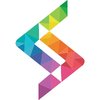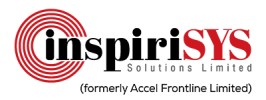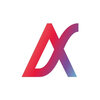
i
ClaySys
Filter interviews by
ClaySys .NET Trainer Interview Questions and Answers
6 Interview questions
Types of inheritance in .NET include single, multiple, multilevel, hierarchical, and hybrid inheritance.
Single inheritance: A class can inherit from only one base class.
Multiple inheritance: A class can inherit from multiple base classes (not supported in C#).
Multilevel inheritance: A class can inherit from a derived class, creating a hierarchy of classes.
Hierarchical inheritance: Multiple classes can inherit from...
OOPs stands for Object-Oriented Programming. It is a programming paradigm based on the concept of objects.
OOPs focuses on creating objects that contain data and methods to manipulate that data.
It involves concepts like inheritance, encapsulation, polymorphism, and abstraction.
Example: Inheritance allows a class to inherit properties and methods from another class, promoting code reusability.
Inheritance is a mechanism in object-oriented programming where a class inherits properties and behaviors from another class.
Allows a class to reuse code from another class
Promotes code reusability and reduces redundancy
Derived class inherits members from base class
Example: Class Car can inherit properties and methods from class Vehicle
Structured Query Language (SQL) is a standard language for managing and manipulating databases.
SQL is used to communicate with databases to perform tasks like querying data, updating records, and creating tables.
Common SQL commands include SELECT, INSERT, UPDATE, DELETE, and CREATE.
SQL is not case-sensitive, but it is conventionally written in uppercase for keywords and lowercase for table and column names.
Primary key uniquely identifies each record in a table, while unique key ensures each value in a column is unique.
Primary key does not allow NULL values, while unique key allows one NULL value.
A table can have only one primary key, but multiple unique keys.
Primary key is automatically indexed, while unique key may or may not be indexed.
Example: Primary key for a 'Students' table could be 'StudentID', while unique ...
Printing odd numbers from a given list or range.
Iterate through the list or range of numbers
Check if each number is odd by using the modulo operator (%)
Print the odd numbers
ClaySys .NET Trainer Interview Experiences
1 interview found
I applied via Company Website and was interviewed in May 2024. There was 1 interview round.
(10 Questions)
- Q1. Introduce yourself
- Q2. Explain what is oops
- Ans.
OOPs stands for Object-Oriented Programming. It is a programming paradigm based on the concept of objects.
OOPs focuses on creating objects that contain data and methods to manipulate that data.
It involves concepts like inheritance, encapsulation, polymorphism, and abstraction.
Example: Inheritance allows a class to inherit properties and methods from another class, promoting code reusability.
- Q3. What is inheritance
- Ans.
Inheritance is a mechanism in object-oriented programming where a class inherits properties and behaviors from another class.
Allows a class to reuse code from another class
Promotes code reusability and reduces redundancy
Derived class inherits members from base class
Example: Class Car can inherit properties and methods from class Vehicle
- Q4. Explain different types of inheritance
- Ans.
Types of inheritance in .NET include single, multiple, multilevel, hierarchical, and hybrid inheritance.
Single inheritance: A class can inherit from only one base class.
Multiple inheritance: A class can inherit from multiple base classes (not supported in C#).
Multilevel inheritance: A class can inherit from a derived class, creating a hierarchy of classes.
Hierarchical inheritance: Multiple classes can inherit from a si...
- Q5. Difference between primary and unique key
- Ans.
Primary key uniquely identifies each record in a table, while unique key ensures each value in a column is unique.
Primary key does not allow NULL values, while unique key allows one NULL value.
A table can have only one primary key, but multiple unique keys.
Primary key is automatically indexed, while unique key may or may not be indexed.
Example: Primary key for a 'Students' table could be 'StudentID', while unique key c...
- Q6. What is Structured Query Language ?
- Ans.
Structured Query Language (SQL) is a standard language for managing and manipulating databases.
SQL is used to communicate with databases to perform tasks like querying data, updating records, and creating tables.
Common SQL commands include SELECT, INSERT, UPDATE, DELETE, and CREATE.
SQL is not case-sensitive, but it is conventionally written in uppercase for keywords and lowercase for table and column names.
- Q7. Pattern printing
- Q8. Fibonacci pattern printing
- Q9. Printing odd numbers
- Ans.
Printing odd numbers from a given list or range.
Iterate through the list or range of numbers
Check if each number is odd by using the modulo operator (%)
Print the odd numbers
- Q10. Sql Aggregate questions
Skills evaluated in this interview
Top trending discussions






Interview questions from similar companies

I appeared for an interview before Jun 2016.
Interview Questionnaire
1 Question
- Q1. Java related questions on Oops concept and Multithreading
Interview Preparation Tips
Experience: Simple aptitude and reasoning questions little java based programming
Tips: Basic programming knowledge and good aptitude
Duration: 1 hour
Total Questions: 60
Round: Technical Interview
Experience: Normal questions on Java, basic programming questions like reverse no. , String related and logical coding
Tips: What u mentioned on your resume go through that only, they will not ask apart from your resume
Skills: How Well You Are Able To Communicate What You Wanted To Tell, Programming
College Name: SRCEM

I appeared for an interview before Aug 2016.
Interview Preparation Tips
Experience: I am vinothkumar from Dindugal, I was studied computer engineering in Madurai institute of engineering and technology at sivagangai, I am quality controller in RR DONNELLY at Chennai, my experience 2 years, my family staying in native, my father palanichami he is a former, my mother tamilselvi she is home maker and my one yelder brother Vijayakumar he is driver, I am interested area software engineer, my hobbies are listening music, reading book and news paper, playing and watching cricket
Tips: No comments
Round: Test
Experience: I am vinothkumar from Dindugal, I was studied computer engineering in Madurai institute of engineering and technology at sivagangai, I am quality controller in RR DONNELLY at Chennai, my experience 2 years, my family staying in native, my father palanichami he is a former, my mother tamilselvi she is home maker and my one yelder brother Vijayakumar he is driver, I am interested area software engineer, my hobbies are listening music, reading book and news paper, playing and watching cricket
Tips: No comments
Total Questions: 15
Round: Test
Experience: See my mentality
Tips: No comments
Duration: 45 minutes
Round: Group Discussion
Experience: Communication
Tips: No comments
Skills: Communication And Confidence

I applied via Naukri.com and was interviewed in Jul 2020. There were 4 interview rounds.
Interview Questionnaire
5 Questions
- Q1. How to implement Sqlite database in React Native?
- Q2. What are generator functions?
- Ans.
Generator functions are functions that can be paused and resumed, allowing for lazy evaluation of data.
Generator functions use the yield keyword to pause execution and return a value.
They can be used to generate an infinite sequence of values.
They are memory efficient as they only generate values when needed.
Example: function* myGenerator() { yield 1; yield 2; yield 3; }
Example: const infiniteGenerator = function*() { ...
- Q3. How to implement push notifications in Android and iOS?
- Ans.
Push notifications can be implemented in Android and iOS using Firebase Cloud Messaging (FCM) and Apple Push Notification service (APNs) respectively.
For Android, integrate FCM SDK in the app and use FCM console to send notifications.
For iOS, create an APNs certificate, configure the app to receive notifications, and use APNs to send notifications.
Both platforms require handling of notification payload in the app to di...
- Q4. How do you use in your last app?
- Ans.
I used React Native for my last app.
Developed UI components using React Native
Integrated APIs to fetch and display data
Implemented Redux for state management
Used Firebase for authentication and database
Optimized app performance using React Native Debugger
- Q5. What is the difference between functional components and non functional components?
- Ans.
Functional components are stateless and return UI elements based on input props, while non-functional components have state and can change UI based on user interaction.
Functional components are simpler and easier to test than non-functional components.
Non-functional components can have state and lifecycle methods, while functional components cannot.
Examples of functional components include buttons, labels, and icons, w...
Interview Preparation Tips
Skills evaluated in this interview

Software Developer Interview Questions & Answers
Nethues Technologiesposted on 13 Jun 2023
I applied via Company Website and was interviewed before Jun 2022. There were 2 interview rounds.

(2 Questions)
- Q1. 1. Ask all questions related laravel
- Q2. 1. Ask questions related database mysql

I applied via Naukri.com and was interviewed in Apr 2024. There were 3 interview rounds.
2 section
MCQ + CODING(intermediate level)
(1 Question)
- Q1. Basic questions related to JS, ANGULAR, Node JS, and some Coding questions
Todo application was the assignment task to complete in one day.
Interview Preparation Tips
Basics of profile stack you should know atleast,
Good to have DSA atleast intermediate level

I appeared for an interview before Feb 2023.
Sorting algo , array question
(1 Question)
- Q1. Oops dbms coding basics

I applied via Campus Placement

(1 Question)
- Q1. Qs related to javascript
(1 Question)
- Q1. Why should we hire you

(1 Question)
- Q1. Everything HTML CSS SQL and core java

I applied via Recruitment Consulltant and was interviewed in Sep 2023. There were 4 interview rounds.

Intermediate aptitude questions .
No negative marking .
Written test held at JMR infotech
(1 Question)
- Q1. Mcq and coding questions . Mostly from Java and spring . Coding question is from Array and String (Find frequency )
(1 Question)
- Q1. After the written test, face to face interview on technical and hr will be there .
ClaySys Interview FAQs
Tell us how to improve this page.
ClaySys Interviews By Designations
- ClaySys Software Engineer Interview Questions
- ClaySys Project Manager Interview Questions
- ClaySys Software Developer Interview Questions
- ClaySys Softwaretest Engineer Interview Questions
- ClaySys DOT NET Developer Interview Questions
- ClaySys Project Coordinator Interview Questions
- ClaySys .NET Trainer Interview Questions
- ClaySys Network Developer Interview Questions
- Show more
Interview Questions for Popular Designations
Overall Interview Experience Rating
based on 1 interview experience
Difficulty level
Interview Questions from Similar Companies
|
Software Engineer
173
salaries
| ₹1.4 L/yr - ₹4.8 L/yr |
|
Software Analyst
66
salaries
| ₹1 L/yr - ₹5.3 L/yr |
|
Softwaretest Engineer
61
salaries
| ₹1.5 L/yr - ₹4.2 L/yr |
|
RPA Developer
45
salaries
| ₹1.2 L/yr - ₹5 L/yr |
|
Software Developer
38
salaries
| ₹1.5 L/yr - ₹5.2 L/yr |

HCL Infosystems

Accel Frontline

PC Solutions

JMR Infotech
- Home >
- Interviews >
- ClaySys Interview Questions











